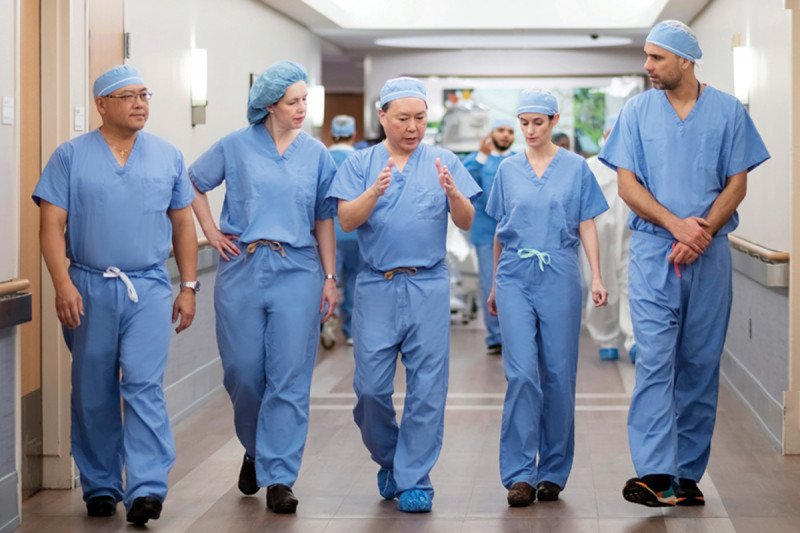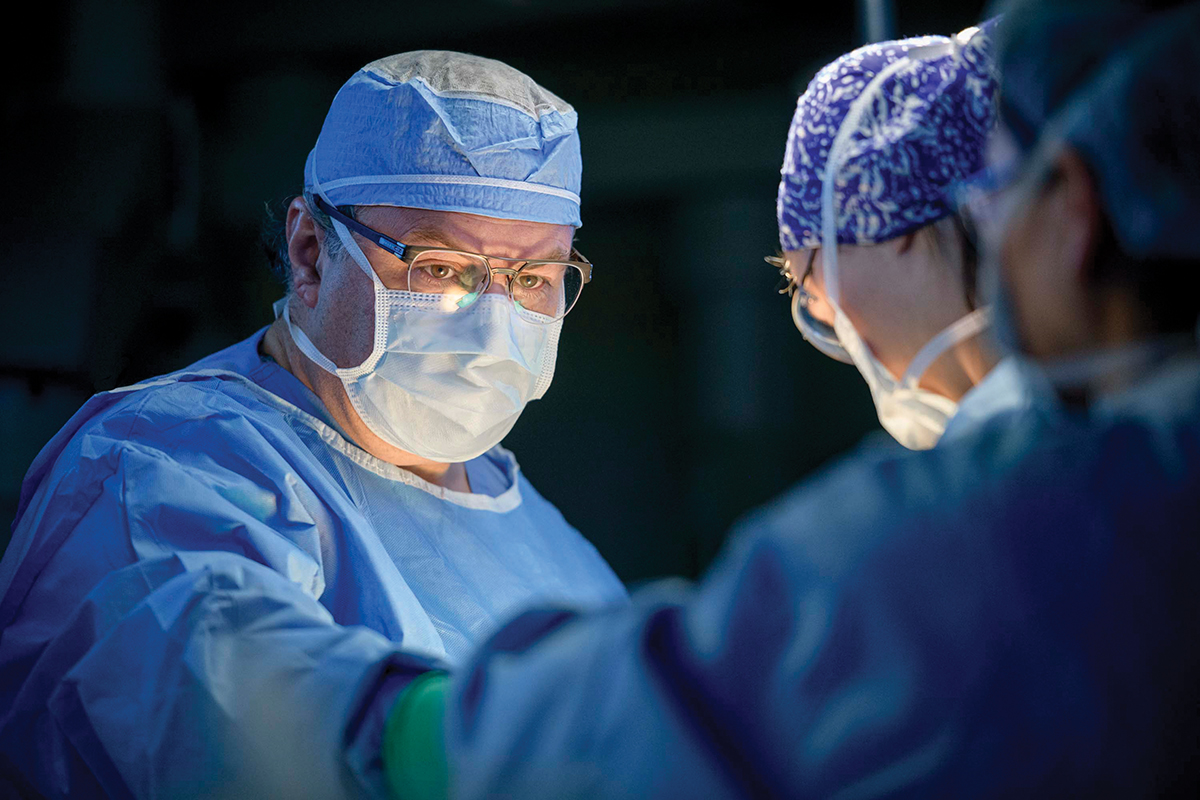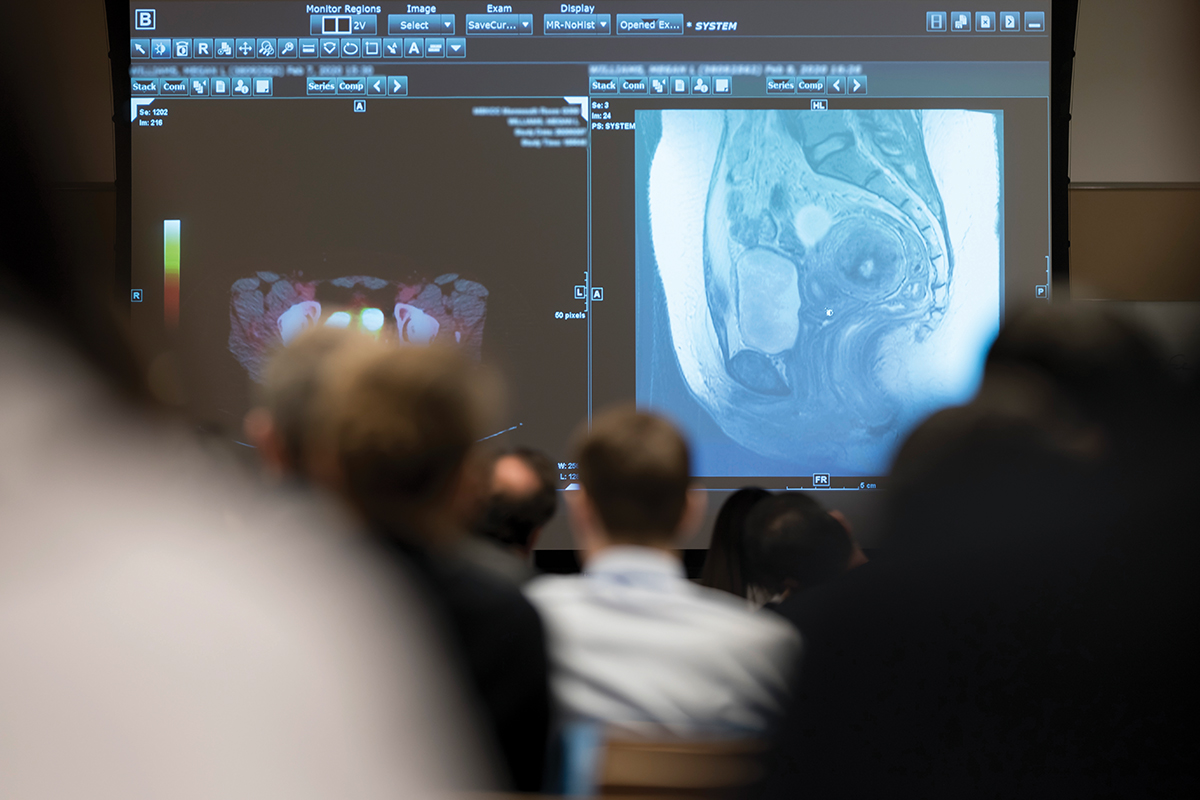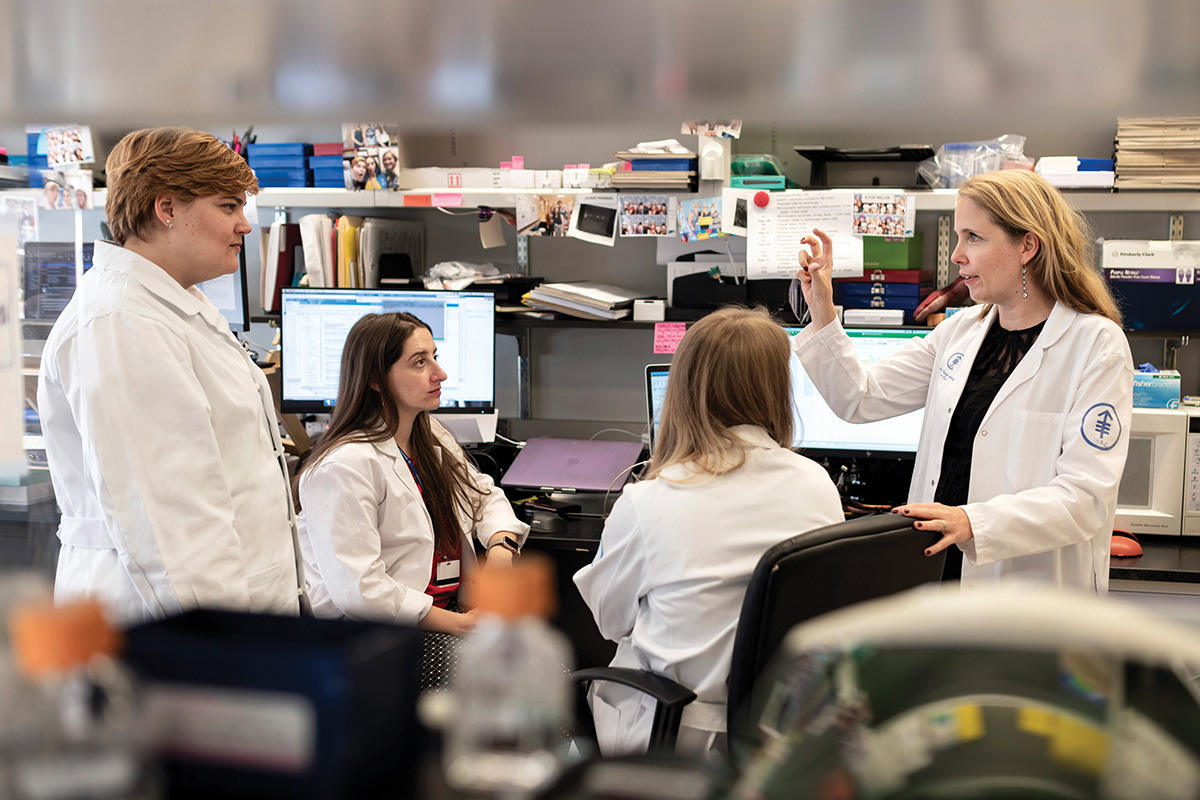
Manisha Koirala, one of India’s leading film actors, sensed something was amiss when her extended family filed into her room and stood silently around her bed. She had been waiting all day in the Kathmandu, Nepal, hospital for a diagnosis to explain the mysterious pain and bloating in her abdomen. Nobody spoke. “What is it?” she asked. “Won’t someone tell me what’s wrong?”

Her eyes fell on her lifelong doctor, pleading for an explanation. Through tears, he told her she had advanced ovarian cancer. It had spread everywhere.
Manisha was in a state of shock. As the reality of the news set in, she thought about making peace with it and “saying goodbye to everyone and everything,” she says. But she was not ready to give up. Her family members urged her to go to the United States to seek treatment.
The long journey paid off: Today, after successful treatment at Memorial Sloan Kettering, she remains in remission after more than seven years.
Raising the Bar
MSK’s expertise in gynecologic cancers has given new hope to many women who, like Manisha, face tough odds. In 2019, U.S. News & World Report ranked MSK number one for gynecology in its listing of the nation’s best hospitals. This honor reflects the dedication MSK brings to caring for people with all stages of cervical, ovarian, and endometrial cancers.

“Our team takes great pride in raising the bar of exceptional patient care, and we’re honored to receive the number-one designation,” says Nadeem Abu-Rustum, Chief of the Gynecology Service.
The gynecologic team is made up of more than 50 highly skilled doctors who focus exclusively on treating these diseases, including very challenging cases, such as Manisha’s.
“The gynecologic cancer group has extensive collaboration, not just between the surgeons and oncologists but also the other specialities, like pathology, radiology, and radiation oncology, as well as the nurses and other medical staff,” Dr. Abu-Rustum says. “Patients benefit greatly from the insights of top specialists working closely to produce the best outcomes.”
Highly Specialized Techniques
Treating these cancers almost always starts with surgery. But before treatment can begin, a precise diagnosis is essential. MSK’s pathologists use state-of-the-art equipment and the most-advanced techniques to classify and assess cancers. “The female reproductive system is one of the body’s more complex organ systems,” says Lora Ellenson, Director of Gynecologic Pathology. “Each member of our team has expertise concerning the immense variety of tumor types that arise there. This allows the treating doctor to choose the most effective therapy.”

If surgery is needed, some doctors within the gynecologic team specialize even further in particular cancers. For example, MSK has five surgeons who deal solely with ovarian cancer. “This has enabled us to develop a deep level of expertise for treating this cancer because we have done such a large number of procedures,” explains Dennis Chi, Head of Ovarian Cancer Surgery, who operated on Manisha.
During Manisha’s 11-hour surgery, Dr. Chi removed all the visible tumors, even those as small as a grain of sand. This extensive procedure is called radical debulking surgery. MSK’s ovarian cancer specialists are extremely practiced at this approach, which boosts the effectiveness of chemotherapy given afterward to destroy any lingering cancer cells. Studies at MSK and around the world have shown that removing this much cancer tissue makes a big difference in improving survival.
Preserving Well-Being
Helping women maintain the best quality of life is a top priority for the gynecologic team. To achieve this, they perform minimally invasive surgeries whenever possible, enabling women to leave the hospital sooner and complete their recovery at home. They’ve perfected surgical techniques to reduce the risk of side effects, such as lymphedema, a painful swelling that can develop after lymph nodes have been removed. They are also adept at operating in ways that can help women preserve their fertility.
Dr. Chi’s surgery put Manisha in the best position to start receiving chemotherapy, which was overseen by medical oncologist Vicky Makker.

While Manisha responded well to treatment, she faced side effects common to people on chemotherapy, such as pain, weakness, and nausea, which required careful management by Dr. Makker. She also encountered feelings of fear and, at times, felt emotionally depleted. “These treatments can lead to complex emotional and psychosocial issues that we must anticipate and be ready to address,” explains Dr. Makker.
The close partnership between the gynecologic specialists and the social workers, counselors, and other experts in MSK’s support programs help women maintain a sense of hope while facing what is likely the biggest challenge of their lives. Clinical psychologists offer emotional and spiritual support during and after treatment, and certified therapists guide women dealing with sexual health challenges.
Advancing the Field
MSK doctors are leading many clinical trials testing new therapies, including immunotherapy. Multiple MSK-led trials are testing the use of drugs called checkpoint inhibitors, which help unleash the body’s immune cells to attack the cancer.
The team is also working with researchers to improve the understanding of how gynecologic cancers develop, progress, and respond to treatment. Molecular geneticist Britta Weigelt leads a laboratory that studies the genetic makeup of gynecologic cancers — both in tumor cells and DNA shed into the bloodstream — to learn more about how mutations cause and promote these cancers and how they affect resistance to treatments.
“We have created a collaborative space for people on the gynecologic team, including oncologists, surgeons, and pathologists, to perform research addressing clinical needs related to these cancers,” she says. “This allows us to translate findings from our lab to patients — and vice versa — at an incredibly rapid pace. It is a privilege to benefit patients’ lives through our scientific discoveries.”

One project that began in 2019 is a collaboration between the gynecologic team and Chief of Computational Oncology Sohrab Shah. Called MSK SPECTRUM, it involves the study of genetic mutations that develop in serous ovarian cancer, the most common type. By conducting genetic analysis of the cancer cells at multiple stages of treatment, the researchers are gaining insights into how the cancer evolves over time, both spontaneously and in reaction to treatment. They hope to shed light on how the immune system responds to these changes so they can design better therapies.
The goal of all this research and collaboration is to lead to even more success stories like Manisha’s. She returned to acting in 2017 and now uses her celebrity status and personal story to draw attention to ovarian cancer.
“Dr. Chi had been the first doctor to give me hope, and he, Dr. Makker, and the entire team gave me my second life,” Manisha says. “I don’t have enough words to thank them.”









